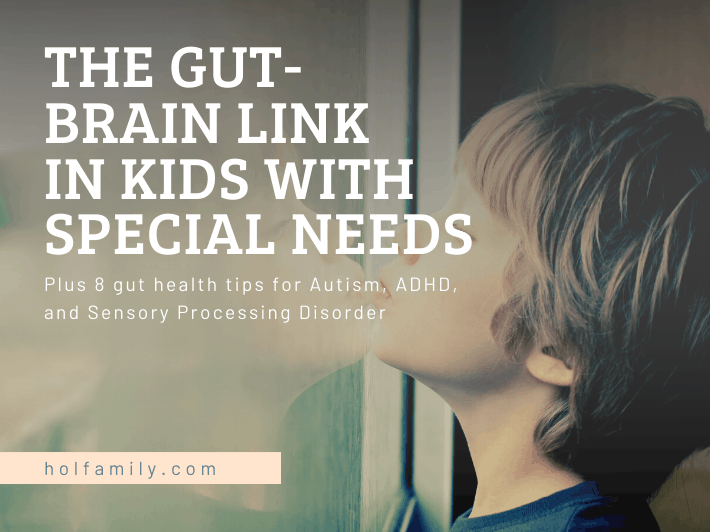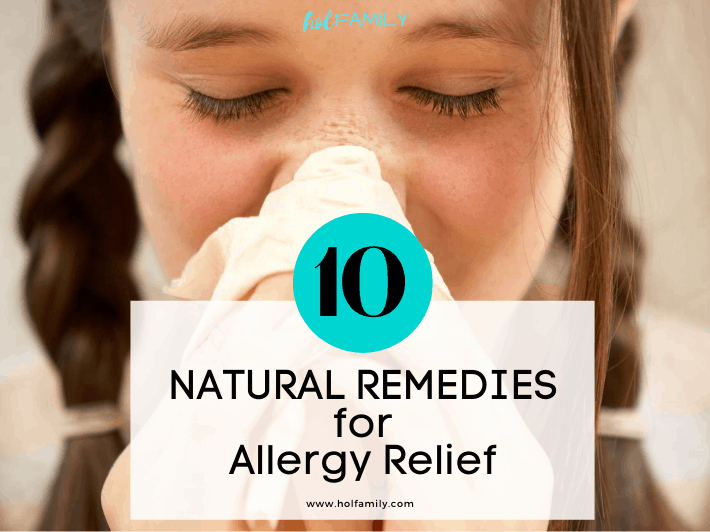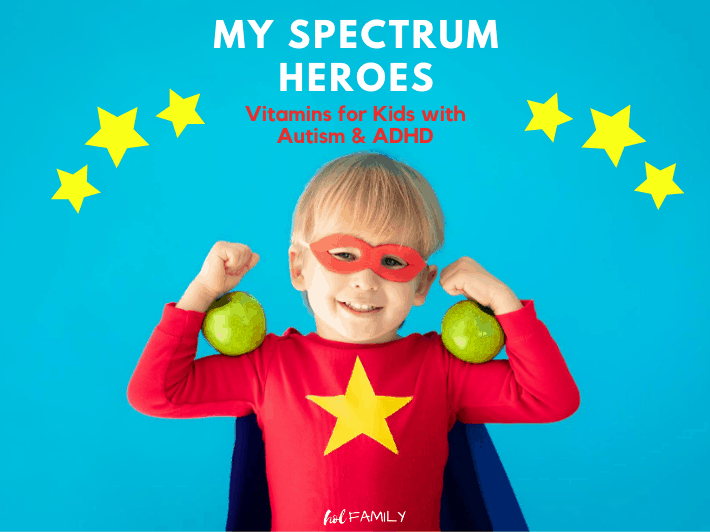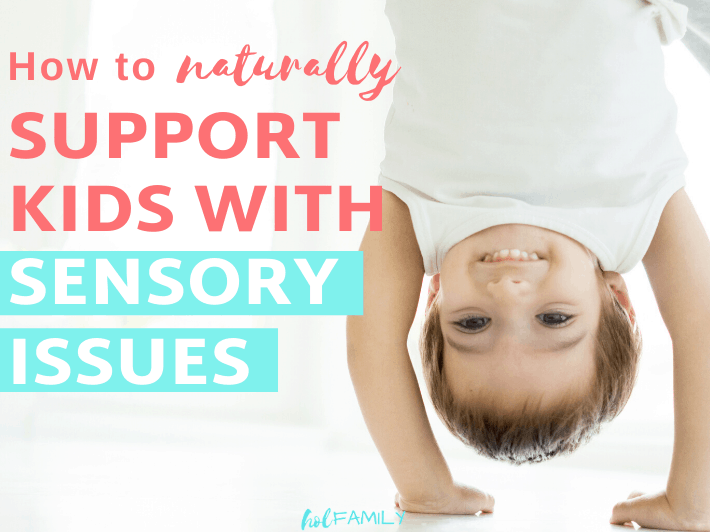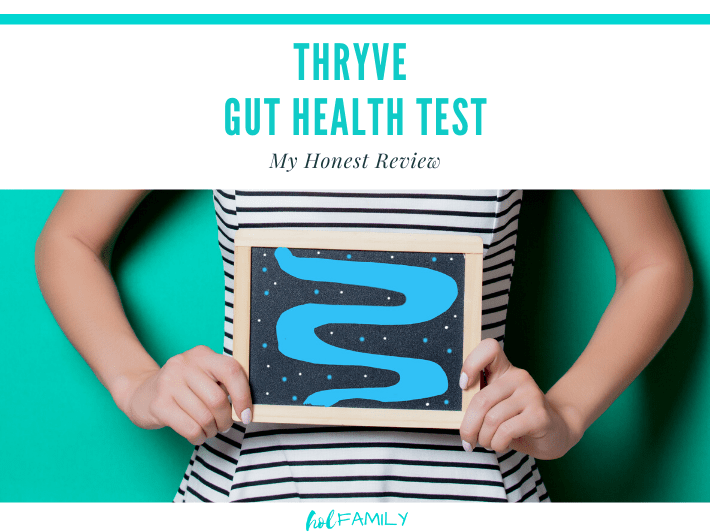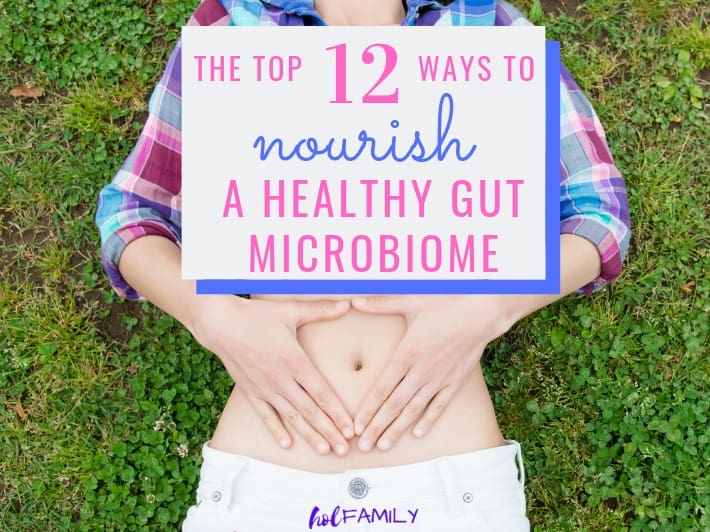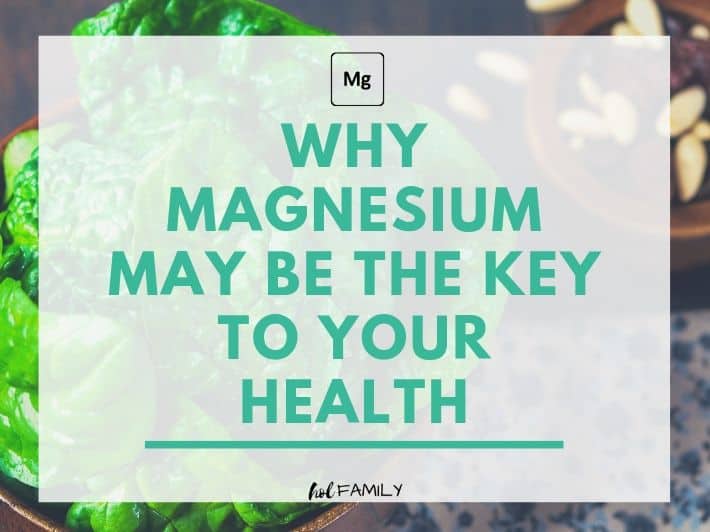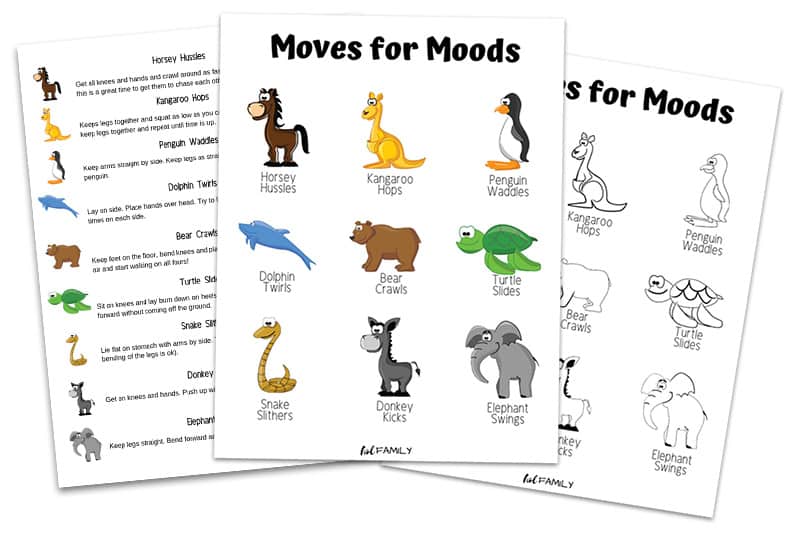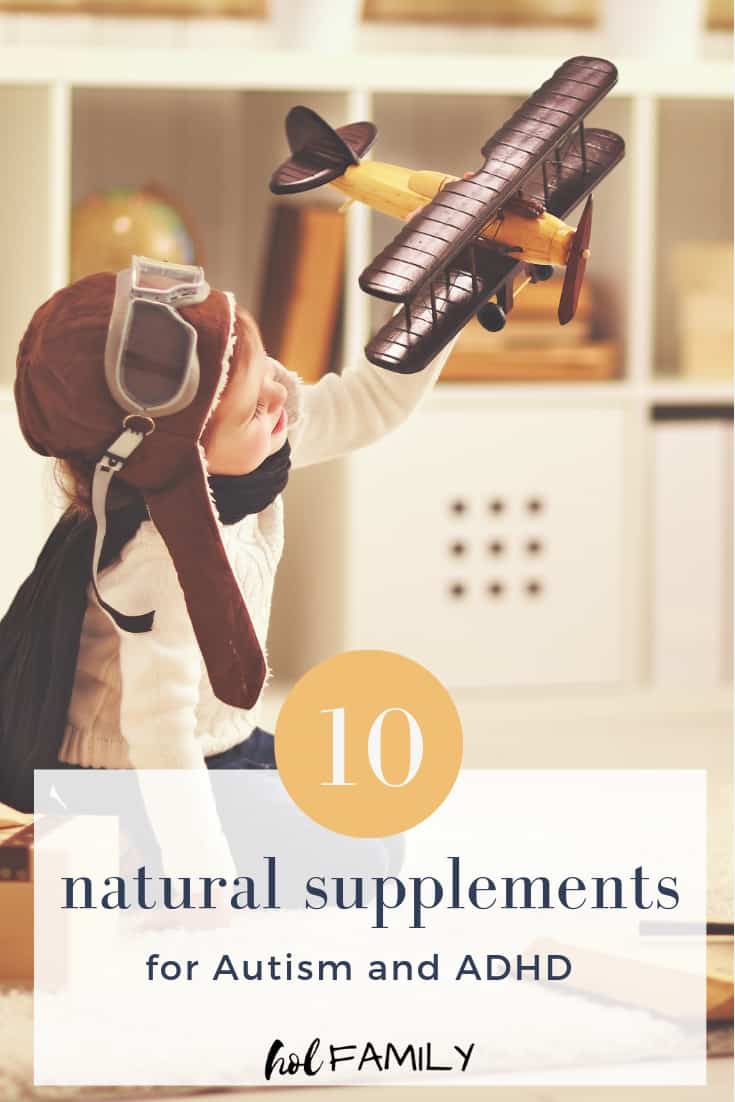
When our oldest son was born, we had all of the same hopes and dreams that most parents have for their children. Would he grow up to be a doctor, a lawyer, a musician, or a chef? We dreamed of little league games, piano recitals, trips to Disneyworld, and more. Like all new parents, none of these desires came even close to our biggest hope – that our son would be born healthy.
In the early years, there were several red flags that something about our son was different. A wrong diagnosis of Nonverbal Learning Disorder initially provided answers, but over time we realized that this label just didn’t seem to fit. By the time we actually received a diagnosis of Autism for our son at the age of 6, many of the core years for early interventions had passed.
Where we lived in Canada at the time, public funding for Autism services drastically decreases as of a child’s 7thbirthday to correspond with the ideal window for therapy. Thankfully, we had already researched biomedical and other natural treatments for Autism, and were well on our way to seeing improvements in many symptoms and behaviors.
Some of the natural therapies for Autism we used included detoxing, following the GAPS diet, switching to a gluten-free/casein-free diet long-term, using essential oils and homeopathy, and addressing the underlying causes of mouth breathing. By far, the biggest improvement came after introducing some of the best natural supplements for ADHD and Autism.
Why Lump Autism and ADHD Together?
Both Autism Spectrum Disorder (ASD) and Attention-Deficit/Hyperactivity Disorder (ADHD) are highly inheritable neurodevelopmental disorders that share a number of features and physiological traits. Research has identified many similarities in prevalence, higher incidence in males, sensory processing issues, sleep disturbances, abnormal neural connections, and difficulties with impulse and motor control.
For years, scientists have debated whether Autism and ADHD represent one condition on a large continuum, or two separate conditions with the same roots. Similar genetic mutations have been found in both disorders, further contributing to the belief that ASD and ADHD are merely different manifestations of one disorder (1, 2).
Some of the current theories on the cause of Autism are also shared with ADHD, and include genetics, impaired methylation, heavy metal toxicity, androgen metabolism, and the gut-brain axis.
Both disorders have a high frequency of co-occurrence with 20-50% of children with ADHD meeting criteria for ASD and 30-80% of ASD children meeting criteria for ADHD.

Traditional Medications for Autism and ADHD
Aside from conventional treatments for ASD and ADHD, oftentimes medications are prescribed to address various aspects of behaviors and to manage symptoms. Medications commonly used for Autism include serotonin reuptake inhibitors (SSRIs), antipsychotics, anti-anxiety medicines, and sleep aids.
For ADHD symptoms, most medications fall into two categories: stimulants, and non-stimulants. While these medications can be very helpful for managing some of the core symptoms that affect academic, behavioral, and social elements, finding the right medication and titrating dosage can be time-consuming and bring unwanted side effects.
An Introduction to the Biomedical Approach
Until we fully understand how a combination of genetic factors and environmental exposures contribute to the origins of Autism and ADHD, we will never have a cure. With evidence pointing to multiple causes, it may be that there are also many different treatment options depending on each unique individual.
The goal of biomedical treatment for Autism and ADHD is to improve the function of neurons and disrupted pathways by supporting the brain and body with nutrients it may be lacking. At times, it may also be necessary to remove any elements that may be impairing optimal health.
Many children with ASD and ADHD have decreased appetites, limited food selection, and poor nutrient absorption. Add to this the fact that many times, body chemistry can be impaired in ways that require additional nutritional support.
As you start your journey of seeking out natural solutions for your child with ADHD or Autism, I recommend you work with a Biomedical or Functional Medicine Practitioner. They will assess your child individually and look at them from a holistic perspective.

Not enough research has been done using nature’s pharmacopeia to support children with neurodevelopmental and behavioral disorders because of limited funding. Thankfully, the studies that have been published provide evidence that many children show marked improvements in language, mood, behavior, social interactions, digestion, immunity, attention, coordination, eye contact, and endurance using natural supports.
Although there are many natural supplements that can be helpful for ADHD and Autism, here are my top ten choices:
Magnesium
We’ve talked before about why magnesium may be a missing link for Autism and ADHD. Multiple studies have looked at the use of magnesium with and without a combination of B6 to support both of these conditions (3).
Magnesium is required for over 350 biochemical reactions in the body, and is a critical factor for metabolism, hormone function, protein synthesis, neurotransmitter function, memory, bowel function, and so much more.
Magnesium is a common nutrient deficiency in children with ADHD or ASD and can result in hyperactivity, poor sleep quality, distractibility, impulsivity, muscle spasms, anxiety, aggression, constipation, and sensory issues.
The best supplement forms to look for are chelates, aspartates, gluconates, and glycinates. Citrates are also well absorbed but can have a laxative effect (which could be helpful for constipation). Magnesium can also be absorbed through the skin using epsom salt baths or with magnesium lotion.
My favorite magnesium supplements for kids are this powdered form that includes B6, and this liquid form.
Food sources tend to be poorly absorbed but include leafy greens, beans, nuts, seeds, and fruit.

Vitamin D
Vitamin D is another deficiency that is more common in children on the spectrum. Vitamin D deficiency during pregnancy may increase the risk for developmental and learning disabilities (4). One study of over 800,000 children in Scotland found higher rates of Autism and disorders in babies conceived in winter months when sunlight exposure is diminished (5).
Vitamin D is required for calcium absorption and bone health. It also plays an important role in immunity, skin health, cognitive function, mood, and development. Deficiency can lead to developmental delays, learning disabilities, eczema, delayed tooth eruption, frequent infections, and rickets.
Vitamin D can be absorbed through the skin with sunlight exposure. Vitamin D3 (cholecalciferol) is the best form for supplementation and oil or micellized versions will be best for absorption.
The best food sources are fish, fish oils, liver, and egg yolks.
Zinc
Zinc deficiency is very common in children with ADHD and Autism. This mineral is required for over 300 enzymes and is necessary for amino acid metabolism, gene expression, brain development, detoxing heavy metals, growth and development, digestion, methylation, sensory and auditory processing, and more. Zinc is also required for Vitamin A absorption and is a key part of the insulin molecule.
A deficiency in zinc can lead to picky eating, elevated toxic metals, frequent infections, inflammation, poor eye contact, sensory processing issues, delayed language, poor growth, skin conditions, and low muscle tone.

Oftentimes, children with ASD and ADHD struggle with picky eating and food aversions. Zinc deficiency can cause loss of taste and even impact perception of taste in the brain. Over time, as zinc levels decline, aversions increase and children will develop a very limited range of acceptable foods.
Zinc can be taken orally or as a transdermal lotion, and the best forms are gluconates, chelates, citrates, and acetates.
Food sources of zinc include beef, legumes, nuts, seeds, shellfish, eggs, and sweet potatoes.
B Vitamins
B vitamins play an important role in energy metabolism, nerve function, neurotransmitter synthesis, fat and protein metabolism, and brain health. Vitamins B6 and B12 are the two B vitamins that have been studied the most extensively for their beneficial use in Autism and ADHD.
Vitamin B6 is necessary for the conversion of excitatory glutamate to calming GABA, and also plays a role in the metabolism of the neurotransmitters dopamine and serotonin. B6 supplementation can help with hyperactivity, anxiety, obsessive and repetitive behaviors, self-stimulatory behaviors, and excitability.
Vitamin B12 plays a key part in the methylation folate cycle, and undermethylation is present in 95% of children with ASD and many with ADHD (6).
B Vitamins can be taken individually, as part of a B-complex, or in a multivitamin supplement.
Food sources of B vitamins include whole grains, meat, eggs, legumes, nuts and seeds, dark leafy vegetables, and fruits.
Essential Omega 3 Fatty Acids
Omega-3 and Omega-6 are the two types of essential fatty acids that cannot be manufactured by the body and must be consumed. Most diets are abundant in Omega-6, but Omega-3 deficiency is more common.
Omega-3 fatty acids are important for brain health and development, vision, mood, behavior, immunity, and reducing inflammation. A deficiency can lead to developmental delays, language and communication delays, impaired cognitive function, ADHD symptoms, mood and behavioral issues, and problems with vision.
Fish oil forms are better absorbed than vegetarian versions, and look for forms higher in DHA.
The best food source is seafood; avoid large fish including tuna, swordfish, and bluefish that are high in mercury, PCB’s and other toxins.

Probiotics
Many children with Autism (and some with ADHD) suffer from gastrointestinal symptoms. Research on the gut-brain axis and its role in the pathogenesis of these developmental disorders has been ongoing, and recently was confirmed in the case of Autism.
Gut bacteria communicate with the central nervous system and have the ability to influence brain function and behavior. Children with ASD have been shown to have low gut microbial diversity, with a marked overgrowth of Clostridia and a decrease in beneficial Bifidobacteria. They also have lower levels of other key beneficial strands found in the stools of neurotypical children (7).
There are striking differences in the gut bacteria of Autistic children and healthy children, which could be linked to the underlying cause of the disorder or a consequence of it.
A double-blind, placebo controlled study in children with ASD found improvements in behavior among children treated with probiotics (8). Other studies have also showed promising results with improving digestive and behavioral health in this population.
I would highly recommend watching this webinar where Microbiologist Kiran Krishnan discusses the connection between ASD and the gut microbiome. He is the co-founder of Just Thrive, and has created a probiotic supplement that contains spore-based strands capable of surviving the harsh conditions of the digestive tract and creating a positive effect in the gut and brain.
Many probiotics on the market contain strains not listed on the bottle or varieties than cannot survive the harsh conditions of the digestive tract. For this reason, I only recommend these spore-based probiotics from Just Thrive. Use the discount code holfam10 to save an additional 10% off.
Multivitamin
As we talked about earlier, picky eating and nutritional deficiencies are very common among children with ASD and ADHD. Supplementing with individual vitamins and minerals can be beneficial in some instances, but oftentimes a high quality multivitamin can provide a wide array of the nutrients that may be lacking.
The best multivitamin supplements come from food based sources that are easily absorbed. Many companies have formulated multis that are specifically designed for children with Autism or ADHD. My top two choices are this one and this one.
Melatonin
Many children with ADHD and ASD struggle with sleep. Oftentimes, this is due to a deficiency in the hormone melatonin. Melatonin is produced by the pineal gland in the brain and is a product of the conversion of tryptophan to serotonin, then finally melatonin.

Supplementing with melatonin can help to regulate the circadian rhythm and balance the sleep-wake cycle. The main side effect is drowsiness if a dose is given too late in the night. Melatonin can safely be used for extended periods of time and can be found in oral or transdermal forms.
Essential Oils
Essential oils are a powerful tool in naturally supporting children with ASD and ADHD. They can have a calming effect, reducing anxiety and over-stimulation, and can help regulate sleep. Other oils can assist with focus, attention, and concentration.
The best oils for Autism and ADHD include Vetiver, Lavender, Sandalwood, Frankincense, Cedarwood, Peppermint, Ylang Ylang, Chamomile, Bergamot, and Mandarin.
Liposomal Glutathione
Glutathione is an antioxidant that plays an important role in detoxification and immune function and is 20-40% decreased in children with ASD. Children on the spectrum and those with ADHD are known to have unusually high levels of oxidative stress in the brain and GI tract, leading to severe inflammation in these areas.
Glutathione can have a strong anti-inflammatory effect, helping to alleviate many GI symptoms like constipation, bloating, and diarrhea and improving emotional and behavioral symptoms as well.
One of the best and highest absorbed forms is Liposomal Glutathione, which protects the glutathione from being damaged in the digestive tract and increases absorption.
Some Final Thoughts
Whenever you are introducing new supplements, it is important to start one at a time, at least five to seven days apart so you can watch for improvements or side effects.
These recommendations are not a substitute for medical advice, and it is important to always work with a medical practitioner such as a Biomedical Physician or a Functional Medicine Doctor to individualize a treatment plan for your child.
Finally, if you are looking for a Biomedical Doctor or Functional Medicine Practitioner, I recommend checking out this resource find someone in your area you can help you choose the best supplements for your child.
Have you tried any of these supplements? Did they help with your child’s symptoms? Leave us a comment below and let us know!

